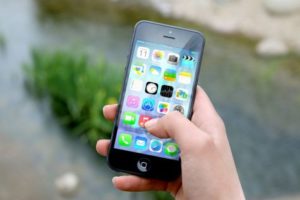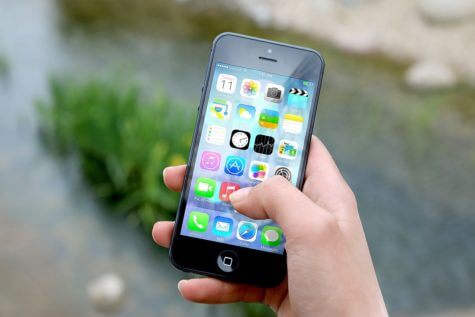SYDNEY — Staring at a screen might just be what the doctor ordered when it comes to treating depression. A new study finds that those who turn to mental health apps to help battle the blues reported a significant improvement in symptoms.
A consortium of researchers in the U.S., UK, and Australia recently examined the results of 18 controlled trials that looked at the efficacy of 22 smartphone-based solutions for mental health issues.

In total, the trials involved over 3,400 adults, all of whom had a qualifying diagnosis, whether it was major depression or insomnia.
The researchers found that smartphone app interventions could play an instrumental role in reducing depressive symptoms, presenting a possible solution to what has become a public health crisis.
“The majority of people in developed countries own smartphones, including younger people who are increasingly affected by depression,” notes Joseph Firth, the study’s lead author, in a university news release. “Combined with the rapid technological advances in this area, these devices may ultimately be capable of providing instantly accessible and highly effective treatments for depression, reducing the societal and economic burden of this condition worldwide.”
Obviously, not just any old app will help in bettering depression — although no treatment-targeted app was found significantly less effective than another (i.e., mindfulness, cognitive behavioral, and mood monitoring programs all fared about the same in treating depressive symptoms).
The researchers also found that those who showed the most improvement were patients who self-reported mild to moderate depression symptoms. Conversely, the team found the apps had little to no effect on the most serious cases — patients diagnosed with major depressive disorder, bipolar disorder and anxiety disorders.
Overall, apps that were “self-contained,” meaning they did not rely on clinician or computer feedback, were the most effective.
“The only other notable finding was that the studies of cognitive training apps had a significantly smaller effect size on depression outcomes than those which focused on mental health,” the authors wrote.
Still, there is no empirical evidence that app-based approaches outperform conventional psychological therapy, nor that they alone reduce the need for antidepressants.
Identifying the types of apps that can be helpful for some, however, is a big step forward, particularly since hundreds of millions suffer from depressive symptoms at any given point in time.
Apps that were monitored in the study include:
- Project EVO
- iPST
- Health Tips
- PRISM
- CBM Active
- Sleepcare
- Headspace
- ACTsmart
- Mission Reconnect
- PTSD Coach
- LivingSMART
- Fit Brains
- MyCompass
- MobileType
- SuperBetter
“Given the multitude of apps available — many of them unregulated — it’s critical that we now unlock which specific app attributes reap the greatest benefits, to help ensure that all apps available to people with depression are effective,” explains co-author Jennifer Nicholas.
The full study was published last week in the journal World Psychiatry.

Comments
Comments are closed.